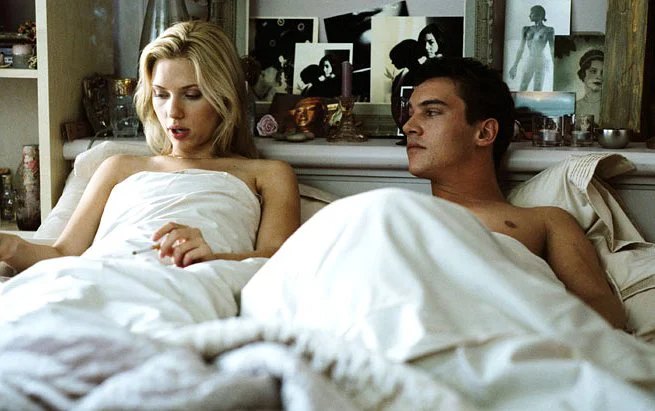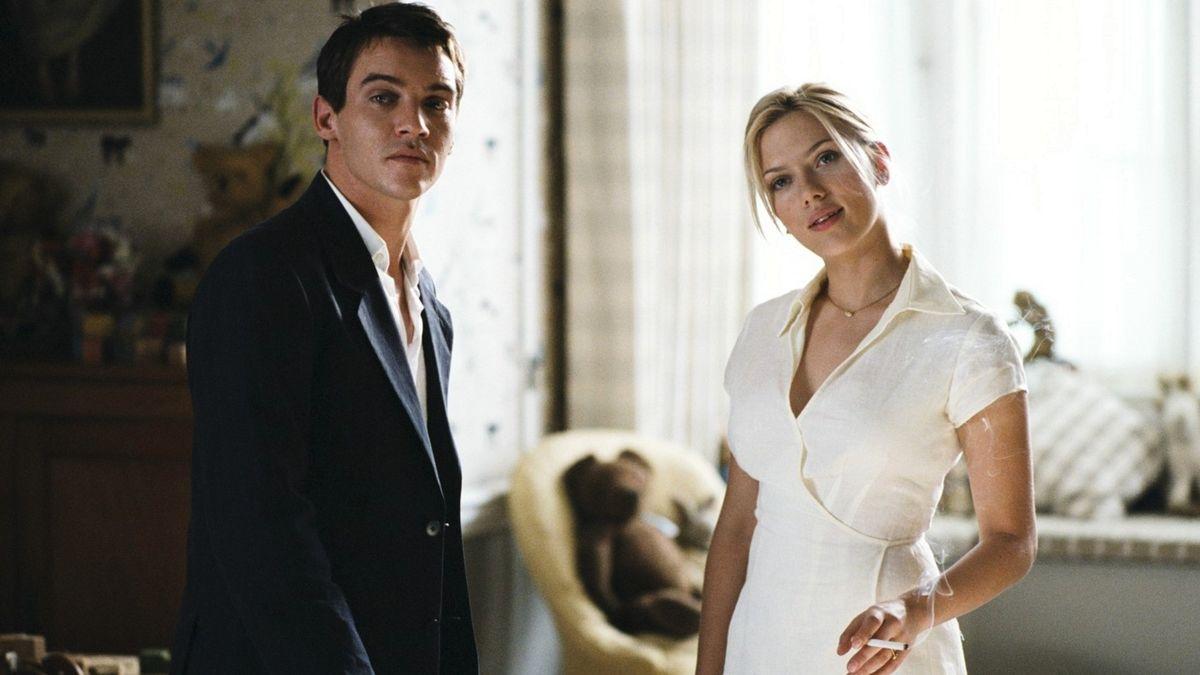Match point (2005)

Match Point is a psychological thriller released in 2005, written and directed by Woody Allen. The film stars Jonathan Rhys Meyers, Scarlett Johansson, Emily Mortimer, Matthew Goode, Brian Cox, and Penelope Wilton. Unlike many of Allen’s earlier films, which were set in New York, Match Point takes place in London, marking a shift in both the setting and tone. The film delves into themes of luck, morality, and desire, exploring the complexities of human relationships and the consequences of choices.
The story follows Chris Wilton (played by Jonathan Rhys Meyers), a former tennis pro who becomes entangled in a complicated love triangle. He marries Chloe (Emily Mortimer), a wealthy young woman, but finds himself deeply attracted to her friend, Nola (Scarlett Johansson). The film explores Chris’s inner turmoil as he tries to reconcile his desires with the life he has chosen. This tension between love, desire, and societal expectations is at the heart of the film, and it creates a dark, suspenseful atmosphere as the story unfolds.
One of the central themes of Match Point is the role of luck and chance in life. The film opens with the idea that luck plays a significant part in determining the outcomes of people’s lives, both in relationships and in their professional successes. This theme is reinforced throughout the film, particularly in moments where small decisions and actions lead to unforeseen consequences. Chris’s fate is shaped by his choices, but it’s also heavily influenced by the randomness of events, such as a crucial tennis match early in the film or a seemingly innocuous meeting with Nola. This exploration of luck and fate questions the extent to which individuals control their own lives.
The film’s moral complexities are also central to its narrative. Chris, although initially appearing to be a sympathetic character, becomes more morally ambiguous as the plot progresses. His infidelity and subsequent actions to cover up his wrongdoings raise questions about his integrity. The film challenges the audience to grapple with the idea of right and wrong, as Chris’s choices often seem to be driven by self-interest rather than any clear moral compass. This moral ambiguity adds depth to the film and makes it more compelling as the audience is forced to question the characters’ motivations and the consequences of their actions.

Another significant theme in Match Point is the exploration of desire and its destructive power. Chris’s attraction to Nola, who represents passion and temptation, leads him down a dangerous path. The affair with Nola becomes an obsession for him, and as the relationship intensifies, so do the stakes. The tension between Chris’s desires and his sense of responsibility creates a volatile situation, ultimately culminating in a shocking and tragic event. The film examines how unchecked desire can cloud judgment and lead to catastrophic consequences.

The film’s direction and cinematography also contribute to its tense and suspenseful atmosphere. Woody Allen’s use of London’s urban landscape adds to the film’s sense of detachment and isolation. The cold, modern settings reflect the characters’ emotional distance and the inner turmoil they experience. The pacing of the film is deliberate, allowing tension to build gradually before the final, shocking conclusion. The cinematography, combined with the subtle musical score, enhances the mood of suspense and unease throughout the film.

In conclusion, Match Point is a thought-provoking psychological thriller that explores themes of luck, morality, desire, and the consequences of choices. Woody Allen’s masterful direction and the strong performances by the cast make this film a captivating experience. Through its complex characters and morally ambiguous plot, Match Point challenges the audience to reflect on the role of chance in their own lives and the ethical dilemmas they face. It is a chilling exploration of the darker sides of human nature and the destructive power of desire.











